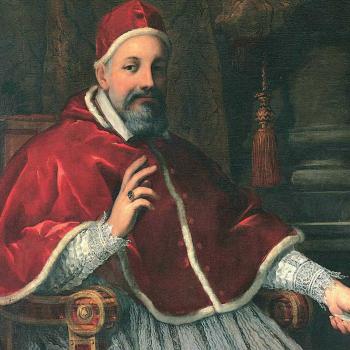You may remember from earlier posts that I was eagerly anticipating R. I. Moore’s book The War on Heresy, which I have now finally read and reviewed for Church History. The review won’t be out till next year but here is a quick summary of my impressions.
The whole story raises critical issues for Christian history. According to the standard narrative, Dualist heresies spread rapidly in Western Europe in the eleventh and twelfth centuries, under the influence of the Bulgarian Bogomils. The Catholic Church responded with a brutal crusade and a ruthless Inquisition that ultimately uprooted the heretics. Moore’s book is a brilliant and extensively researched account of this episode, but he also makes a distinctive and revolutionary argument, namely that the Church basically made up the heresy that the Cathars were charged with. While plenty of ordinary French and Italian people accepted deviant religious ideas, many foreshadowing later Protestant thought, the Dualist elements were made up to stigmatize dissenters. There were no “Cathars”, he says, and he even uses the words in quotes.
Moore uses an approach that social theorists call constructionism. In order to understand a social problem we should spend less time on the issue at hand than on the responses of official agencies and (to use an anachronism) the media. Why did they feel the need to identify and combat the supposed problem at the given time? To give an analogy, Early Modern Europe devoted massive effort to fighting witch-cults that never really existed. You can have a great deal of smoke with no fire at all.
I would recommend Moore’s book to anyone interested in medieval history or religion, and his detailed deconstructions of particular episodes and trials are quite wonderful examples of scholarship at its best. But I simply don’t buy his overall argument about the Cathars, and I have several reasons for this.
i.Even on the basis of the evidence Moore presents, we repeatedly encounter “Cathars” spontaneously and undeniably expressing views that fit perfectly with the Dualist hypothesis. Through the eleventh and twelfth centuries, such believers advocate a consistent body of teachings that holds, for instance, that marriage and sexuality are evil, that Christians are not permitted to eat meat, and that the sacraments are diabolic inventions. In some of the best-documented encounters between orthodox and heretics – not under coercion or torture – Cathar leaders openly reject the Old Testament. As I wrote, they therefore echoed “those Manichaeans and other overt Dualists who held that matter was evil, that sex and reproduction were the works of the evil Creator of this material world, who was also the God of the Old Testament. Those heretics worshiped instead the good God of Light revealed in the New Testament.”
ii.Moore does not cite evidence that contradicts his views, including some Cathar documents that are pure Dualist in their ideas, and which clearly show Bogomil connections. This includes alternative gospels such as the Book of John the Evangelist that certainly circulated in Languedoc
iii.Moore makes very few references to conditions outside Western Europe, and thus he has no comparative basis for looking at the movements and ideas he describes. If he did, he would see just how precisely these ideas accord with the Dualist theories that we find widely across the Middle East and Balkans, a well-documented blend of ancient Marcionite and Encratite doctrines.
iv.Some of Moore’s theological statements and labels are curious. After citing Cathars denying the Old Testament, he refers to them as, basically, simple New Testament Christians, but surely not in a sense that any modern believer would accept that term!
For me, then, I would not compare the Cathar persecutions to the witch trials but rather to the Inquisition’s assaults on Protestants and Jews. While the Inquisition undoubtedly made up many horror stories, we never doubt that Jews and protestants really existed to be persecuted. And similarly with the Cathars. Whatever miscarriages of justice the Inquisition perpetrated at particular times and places, a sizable volume of solid evidence really does suggest that the Cathars existed as a distinct movement with a broadly Dualist theology and a characteristic structure and organization: in fact, an alternative church. And emphatically, these were nothing like the proto-Protestants of later evangelical legend.
Cathars were Dualists. QED.












